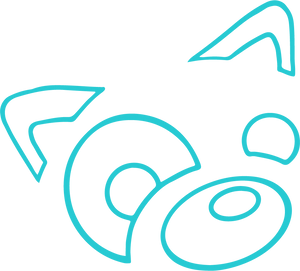A Quick Scoop on Fibre in Your Pet's Diet
We're the same type of weird if, as a pet parent, you obsessively study your pet's poop.
What is it trying to tell you? What influences your pet's bowel movements?
Fibre - The Digestive Tract Chaperone
Everything you feed your pet affects their digestion and poop. Protein, fats, and carbohydrates all impact your pet's health. But they all rely on fibre to get where they need to be.
Fibre slows down the movement of food through the digestive system.
But what does that mean?

When food moves through your pet's digestive system slower, their body has more time to extract nutrients from the food.
The more food that is digested and absorbed, the less waste there is to be deposited in your pet’s poop. This means the bulk of their poop will be made up of indigestible fibre, as opposed to nutrients they missed out on.
The slowed movement of food through the digestive tract may even prolong the time before your pet’s next poop.
Fibre can also influence physical characteristics of poop, such as shape and firmness. As Dr. Joe Inglis describes below, it's important to know your dogs' poop and be able to identify any changes to their bowel movement as they can indicate changes in health status:
"As a veterinarian, I can’t emphasize enough the importance of paying attention to your pet's bowel movements. Your pet’s poop offers valuable insights into their digestive health. It’s a reflection of the quality of their diet and their overall well-being. Fiber plays a crucial role in this process, helping to regulate digestion and ensure that nutrients are absorbed effectively. By studying these daily deposits, we can identify potential health issues and ensure that our furry companions are getting the nutrition they truly need. After all, a healthy gut leads to a happy pet!" - Dr. Joe Inglis, BVSc, MRCVS.
Dr. Inglis is a UK-based Veterinarian and expert in animal nutrition. He is also the founder of VetChef and collaborator on the Tom&Sawyer VetChef line of recipes found at www.vetchef.pet
What about other nutrients?

Protein, fats, and carbohydrates can also affect how quickly food is digested, but what's more important for these nutrients is their digestibility.
Fibre can help your pet absorb more nutrients from their food, but that isn't much good if the nutrients are low-quality or hard to digest. And the less their gut absorbs, the more nutrients end up in their poop, and the more poops you have to scoop!
To feed your pet for better poops, look for highly digestible ingredients and a moderate fibre content! (Hint: We've saved you the trouble by making nutritionist-developed pet meals with the highest quality, human-edible ingredients already). Shop our meals here!
Written by: Hannah Godfrey
Animal Nutritionist
BSc.H. | MSc. | Ph.D.
www.tomandsawyer.com


